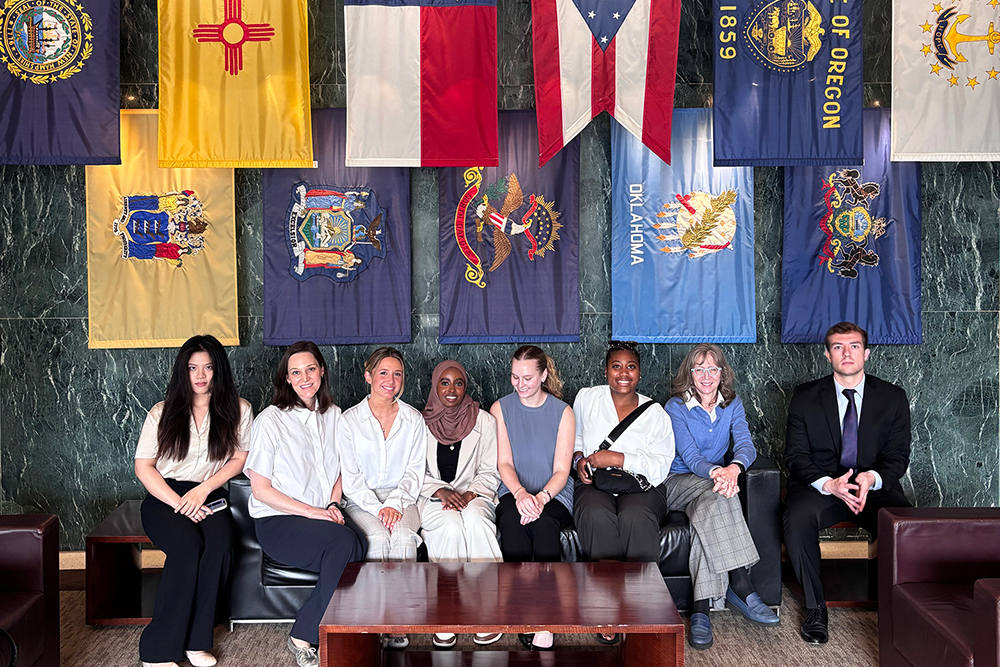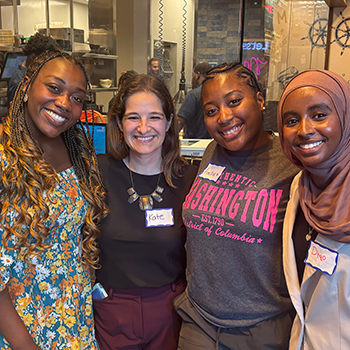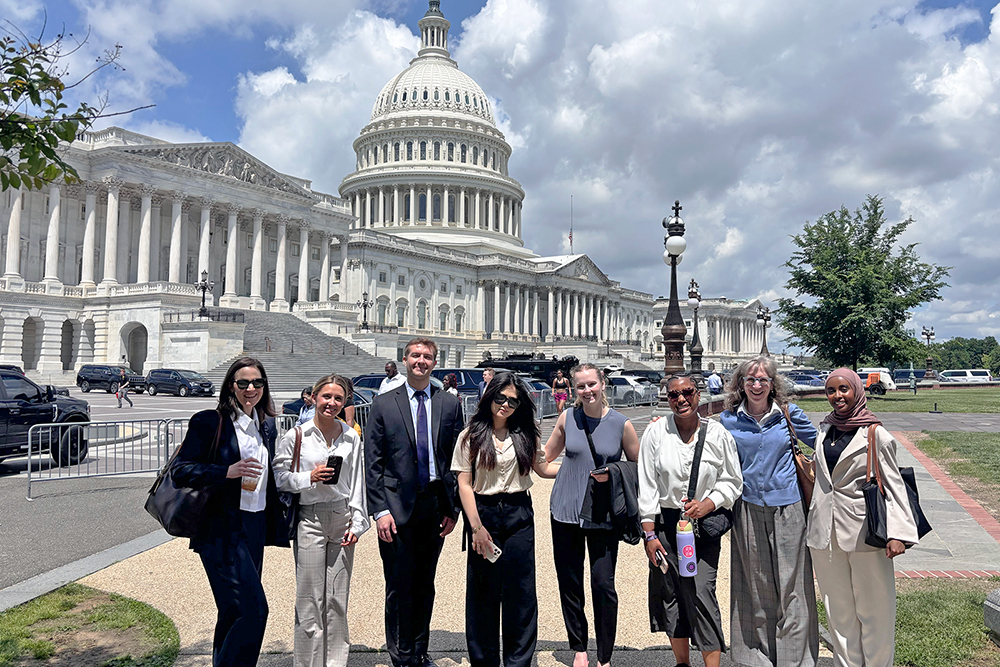‘What we learn in classrooms only matters if we use it’
Public health students explore advocacy, policymaking in Washington, D.C.
By Kristen Mitchell

Nearly 400 miles stretch between Columbus and the seat of federal power, but the weight of decisions made in Washington, D.C. is felt all around us. Seven College of Public Health students traveled to Capitol Hill this spring to learn about public health advocacy and policymaking from professionals in the field — an opportunity to see how classroom concepts translate to real-world change.
“We teach students about politics and policy, but until one sees policymaking in action, it is hard to understand the process,” said Amy Ferketich, associate dean of academic and student affairs, who led the trip. “An important lesson learned is that we all want to live in a healthy community. Elected officials have varying ideas about how to get there, but everyone has the same goal of good health and well-being.”
Students attended U.S. House of Representatives committee meetings and met with senior staff at the American Public Health Association (APHA) and the Association of Schools and Programs of Public Health (ASPPH) to learn how these organizations advocate for public health funding, programs and policies.
ZiLin Chen, an undergraduate student majoring in public health sociology, and Barlow Wagner, a master’s student in biomedical informatics, reflected on what they learned during the trip.

Day one
Policy debates in Congress
Chen: At the House Committee on Appropriations hearing on Customs and Border Protection I was struck by the discussion of recently revoked policies that previously guaranteed basic protections for vulnerable detainees — including pregnant women's postpartum and basic care.
From a public health perspective…hydration and rest aren't luxuries — they're prevention, and they can mean the difference between healthy outcomes and medical emergencies. The hearing left me wrestling with difficult questions: How do we balance security with humanity? Where should public health professionals draw the line? As future health professionals, we must monitor how policy changes affect vulnerable populations.
Heartening conversations with alumni

Chen: Public health is a verb — this trip crystallized that sentiment for me through every conversation with alumni and advocates. Their winding career paths, from idealistic students to pragmatic changemakers, shared one truth: what we learn in classrooms only matters if we use it.
The most surprising revelation was how many professionals never imagined their current roles. Their stories stripped away my paralysis about choosing the "right" path, because there isn’t one. There’s only showing up, again and again, with our tools and questions.
Day two
Talking advocacy with APHA
Wagner: I learned about how APHA works in a non-partisan manner to advocate for quality public health policy and how they utilize courts as an avenue to counter unlawful or weak federal policy. I left with a better understanding of how organizations can work together on common ground, approaching state priorities and federal priorities differently and feeling reassured that judicial review is still functioning well and being practiced.
Chen: Watching APHA professionals navigate lawsuits and shifting policies, I realized: we don’t study public health to avoid crises, but to stand firm within them. Public health isn't about grand gestures, but the daily choice to stand by communities — especially when it's hardest.

Identifying where values align with ASPPH
Wagner: Learning about the value of leadership in public health and how being able to listen to others and hearing their perspective on what they are trying to tell you is important in finding where values align — building on those points is where progress can be made.
[Something I’ll carry forward is that] being able to communicate complex ideas and policy in a way others can understand is important…I left feeling more inspired to do more writing about subjects that I have thought about writing about but never took the thoughts super seriously — including my experiences working at an addiction medicine clinic and at a certified community health center.
I left this meeting feeling energized and optimistic knowing there are groups like ASPPH who are advocating for students and their academic interests on a federal level.